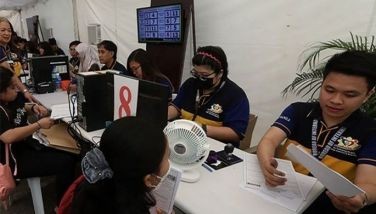Digital agriculture part 2

One of the greatest challenges that humankind faces in the future is providing enough food for the table for a global population exceeding nine billion by 2050 which according to the UN Food and Agriculture Organization (FAO) will increase demand for food and feeds by 100 percent from current levels. Exacerbating this is the growth of middle-class population to two billion by 2030 who will demand more variety and high-quality food.
But while demand is accelerating, farmers must work with ever-shrinking farmland which are giving way to cities and to the planting of lucrative but non-food crops. Climate change however constitutes the biggest challenge. Global warming, changes in rainfall patterns, more frequent extreme weather events ranging from floods to droughts, all have adverse effects on agricultural production. The challenge then is to increase productivity given these adverse conditions.
As with manufacturing and services, digital technology is proving to have the same transformative impact on agriculture by providing precise data that help farmers raise productivity, bring their products to the market more efficiently, and provide traceable, high quality products that more consumers are demanding. These tools include the Internet, big data, blockchain, robotics, cloud computing, internet of things, and drones. By collecting real-time data on crop development, soil, weather, and air quality, farmers are able to make informed decisions with regards to planting, fertilizing, and harvesting crops. This translates to increased yields, reduced costs, less crop damage and minimized water, fuel and fertilizer usage. For the consumer, this equals cheaper and better-quality food. On the marketing side, farmers are able to access markets directly. While this may sound like beyond the pale of small farmers, actually many of them already have the device to access these data – their cellular phones.
The Department of Agriculture has recognized these developments and have begun implementing its digital agriculture initiative through training programs at the grassroots level. However, to move forward, and scale up to the level where it will have a transformative impact, an enabling environment must be created to foster innovation and adoption of digital tools in farming. This will require the collaboration of all stakeholders: government, the private sector, the farming community, financial institutions, research institution and civil society.
Joint roundtable
It is that in mind that APEC Business Advisory Council (ABAC) Philippines and the Carlos P. Romulo Foundation (CPRF) with the support of the Department of Agriculture have co-organized in April a roundtable to bring the relevant stakeholders together in a conversation on how digital agriculture can take root and thrive in the Philippines. This is a continuing program of the CPRF on the digital economy and the first in a series on digital agriculture for the next two years. Promoting smart agriculture on the other hand, is a key advocacy of ABAC in 2020 under ABAC Malaysia’s chairmanship.
Agriculture Secretary William Dar will keynote the roundtable. There will be three sessions. The first session will examine the conditions supportive of a digital farming ecosystem including digital infrastructure and connectivity, internet platforms for data and for marketing, tech literacy, financing particularly for small farmers, and the regulatory environment. The second session will survey the regional landscape of digital farming with presentation and sharing of experiences of economies who have applied digital technology to agriculture including Thailand, Indonesia, Chinese Taipei, Australia and the Philippines. The final session will be a roundtable discussion on the next steps necessary to scale up digital farming nationwide. It will cover the legal and regulatory environment, financing, and infrastructure from the perspective of both small farmers and large corporate farms. Hopefully, the roundtable will help raise the visibility of digital agriculture and generate recommendations on moving forward.
DFA
On a positive note, ever since he took office, DFA Secretary Locsin has been protective of the career service. The career foreign service has often been crowded out of some foreign postings by political appointees not all of which have the necessary qualifications or have distinguished themselves in service. The latest demonstration is current Undersecretary for Policy, Enrique Manalo, a competent and UN conversant career diplomat who the Secretary had nominated as Permanent Representative to the UN in New York. It is to the credit of Sen. Risa Hontiveros and Rep. Josephine Ramirez-Sato that the unknown political appointee for that post was deferred by the Commission on Appointments. It certainly is a morale booster for the career service. Long may it continue.
To avoid potential confusion/embarrassment, I strongly recommend that all pronouncements regarding foreign affairs be coordinated between DFA and the Palace. There are diplomatic nuances which may elude even the effervescent presidential spokesman.
- Latest
- Trending


























